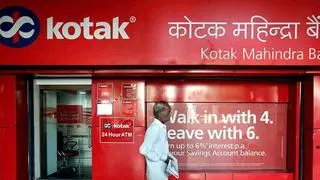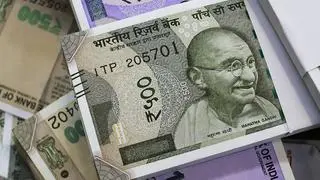The Reserve Bank of India on Wednesday cautioned that farm loan waivers and fiscal stimulus could push up the the combined (Centre plus States) fiscal deficit to GDP ratio by around 100 basis points in 2017-18.
“The general government fiscal deficit (of Centre and States combined) is already in the region of 6 per cent of GDP. Our national fiscal stance can hardly be described as tight. In other words, we should be very cautious, lest fiscal actions undercut macroeconomic stability,” said Urjit Patel, Governor.
Staggering waiversAccording to the RBI, five States — Maharashtra, Uttar Pradesh, Punjab, Karnataka and Rajasthan — have announced farm loan waivers in 2017-18 so far. Two of these States — Uttar Pradesh and Punjab — have made provisions for the likely increase in expenditure in their budgets for 2017-18.
During 2014-2016, three States — Andhra Pradesh, Telangana, and Tamil Nadu — had announced farm loan waivers aggregating ₹47,000 crore, but staggered over five years. There are reports of a few more States considering farm loan waivers, the RBI said.
Furthermore, against the backdrop of the growth slowdown, there are reports that the Centre might undertake policy actions to provide a boost to growth.
The RBI observed that slowing growth could also have some adverse impact on tax revenues. The Centre’s fiscal deficit could potentially widen on account of these factors, it warned.
Inflation expectationsHigher fiscal deficits per se could lead to an increase in inflation expectations and actual inflation. Moreover, budget constraints might force some of the States to reduce their capital expenditure.
“If capital/infrastructural constraints are binding, a reduction in capital expenditure may turn out to be inflationary as costs —including time value/opportunity cost of delays and material damages — go up as a result of capacity restraints becoming even more acute and due to attendant “congestion charges”.
“Higher market borrowings on the back of higher deficits can also put upward pressure on borrowing costs for the Centre and the States, which could spill over to the broader economy,” the RBI cautioned.
Boosting demandThere are upside risks to the Centre’s fiscal deficit from possible measures to provide a boost to domestic demand and from lower tax revenues. Assuming that the Centre’s fiscal deficit/GDP ratio widens by 50 bps in 2017-18, inflation could be around 25 bps above the baseline.








Comments
Comments have to be in English, and in full sentences. They cannot be abusive or personal. Please abide by our community guidelines for posting your comments.
We have migrated to a new commenting platform. If you are already a registered user of TheHindu Businessline and logged in, you may continue to engage with our articles. If you do not have an account please register and login to post comments. Users can access their older comments by logging into their accounts on Vuukle.